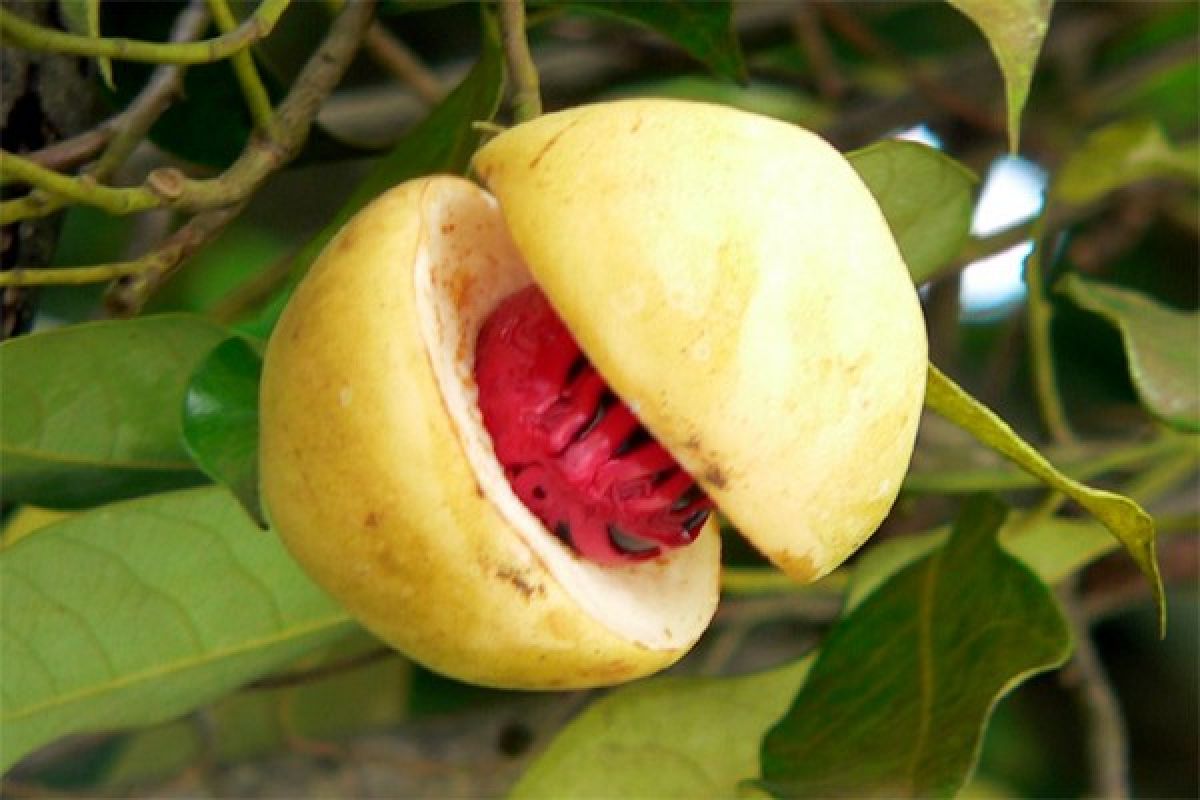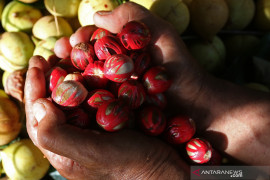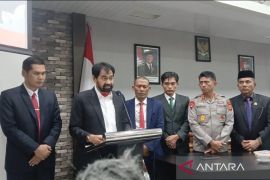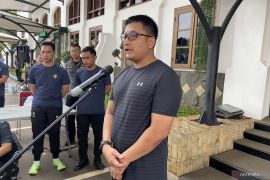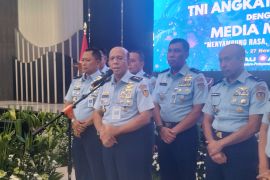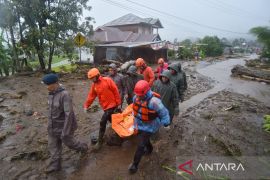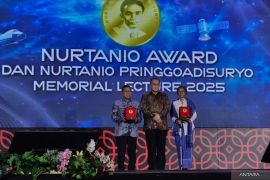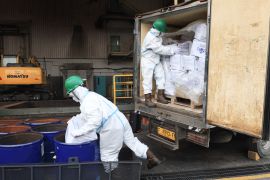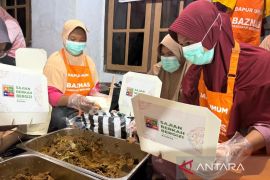I received a recommendation from the Ministry of Agriculture to become a distributor of nutmeg seeds throughout IndonesiaJakarta (ANTARA) - Nutmeg, or Myristica fragrans Houtt, appears to thrive on almost all inhabited islands of Banda. The spice has held a prime place since the start of the global spice trade hundreds of years ago.
Of the 11 islands in Banda, the ones that are inhabited include Gunungapi, Banda Besar (Lontar), Banda Neira, Hatta, Ay, Rhun, and Syahrir. In the past, the islands housed nutmeg plantations controlled by the Dutch. These included 31 plantations on Pulau Ay, 34 plantations in Banda Besar, and three plantations in Banda Neira.
With the collapse of the Dutch in 1942, the control of the nutmeg plantations fell into the hands of the Japanese who cut down most nutmeg plants and replaced them with cassava.
The Japanese occupation of three years inflicted severe damage to the nutmeg plantations of Banda Islands as the new colonialists were not interested in the spice.
After Indonesia gained independence in 1945, the nutmeg plantations were taken over as state assets. They were put under the management of the Banda Nutmeg Plantation, instead of the community, as was the practice earlier. One such plantation, extending over 140 hectares (ha), was owned by the Van Den Broeke family.
According to Banda historian Mochtar Thalib (65), the nutmeg plantation, during its development phase, was not managed well since it relied on the community. Though based on a profit-sharing system, such plantations were not really profitable for the community, he said.
Under the system, each family was given a parcel of land to manage. But, 70 percent of the profits from cultivation went to the company, while the remaining 30 percent went to the family who managed the land, he explained.
"This condition lasted until around 2010," he pointed out.
Although the nutmeg plantations were managed by the community, they did not have the right to own the land as a whole. The land remained under the control of the company, even though all the benefits from the cultivation could already be enjoyed by the community, Thalib said.
Citing data from the Banda Subdistrict in Figures in 2019, the Central Statistics Agency (BPS) reported that 1,211 families cultivated nutmeg plants with a harvest area of up to 382 ha and production of 922.5 tonnes in 2018.
Cleaning nutmeg plants not far from an old Dutch house on Rhun Island, Rosman Rajamani (43) and his wife Saidah (40) said they had planted nutmeg on an area of 50 x 50 meters.
Rajamani said he inherited the land from his grandfather, who used to serve as caretaker of the house. The family has been growing dozens of nutmeg trees on the land since about 15 years ago.
"Currently, there are about 10 trees that can be harvested," said Rosman.
His wife, Saidah, said the land is now part of a family legacy, to be passed down from generation to generation. During the Japanese occupation, all the nutmeg plants on the land were cut down so that only a few trees remain today, she added.
Nutmeg Plantations
Apart from Rhun Island, the largest center for nutmeg plantations is Banda Besar Island. One of its villages — Lonthoir — served as a symbol of the flourishing nutmeg trade on the Banda Islands hundreds of years ago. In that village there lives one family that has descended from the Dutch nutmeg plantation owners.
Pongky Irwandi Van Den Broeke is the 13th generation of nutmeg plantation owners (Parkenier) on Banda Islands. Irwandi was born on August 5, 1956. His father, Benny Wiliem Van Den Broeke, was a descendant of Paulus Van Den Broeke, a Dutch citizen who managed the plantation in 1912.
Since the Dutch colonial period, the Van Den Broeke family has controlled 140 ha of nutmeg plantations on the Banda Islands. However, with the Indonesian government gradually reclaiming most of the land, Irwandi, 64, has been left with just 12.5 ha.
Right next to his house stands a two-story building used for drying nutmeg. The top of the building can accommodate up to seven tons of the spice once it is ready for drying. Meanwhile, the lower portion of the building houses a furnace to smoke the nutmegs.
"The process of drying the nutmeg can take up to one month. During the day, the drying is done using solar power. In the afternoon until the evening, the drying process is carried out using a furnace," Irwandi said.
With a plantation covering 12.5 ha, Irwandi can harvest nutmeg three to four times a year. Each harvest period, he gets up to two tons of nutmeg. And in one year, he harvests up to seven tons of the spice.
Currently, dry nutmeg sells for Rp70 thousand - Rp85 thousand per kilogram. Meanwhile, nutmeg flowers are priced at around Rp240 thousand per kilogram.
Irwandi admitted that after the reform era of 1999, he has enjoyed huge profits from the sale of dried nutmeg and its flowers. The price of dry nutmeg can reach Rp190 thousand per kilogram, while nutmeg flower is priced three times higher, he said.
Related news: On the scent of the Dutch nutmeg on Banda Islands
Related news: For super-priority destination tag, Toba requires infrastructure push
The workers on his farm peel the outer skin of the dried nutmegs and use a small grinding machine to prepare nutmeg seeds, which are sold to farmers across Indonesia.
"I received a recommendation from the Ministry of Agriculture to become a distributor of nutmeg seeds throughout Indonesia," said Irwandi during a conversation with ANTARA in mid-November 2020.
Besides nutmeg seeds, Irwandi also sells 10 thousand of 4-7 centimeter sprouted seeds at a price of Rp1,400 per seed.
He sends sprouted seeds to all regions in Indonesia packed in cardboard boxes. Each carton can contain 1,500 seeds and the seeds can last up to a week without using soil growing media, Irwandi informed.
He said he also produces essential oil from the dried nutmeg, which can sell for up to millions of rupiah per liter.
The raw material for nutmeg oil comes from young nutmegs that fall to the ground and also nutmeg seeds that fail to germinate.
"One liter (of essential oil) is sold for up to Rp1.3 million. Usually there are tourists who come to buy nutmeg oil in a smaller size to be used as a souvenir. A 150-milliliter nutmeg oil (bottle) sells for Rp50 thousand," he said.
In the business, nutmeg oil production is considered the most profitable of all the plantation products, he added.
However, maintaining the quality of dry nutmeg takes priority over profits, he said. And it is this quality that has been recognized by the world for hundreds of years now, he remarked. (INE)
Related news: Tracking the spice trail to Banda
Related news: WALHI praises Dutch court's 45-pct emission reduction verdict for RDS
EDITED BY INE
Editor: Fardah Assegaf
Copyright © ANTARA 2021
